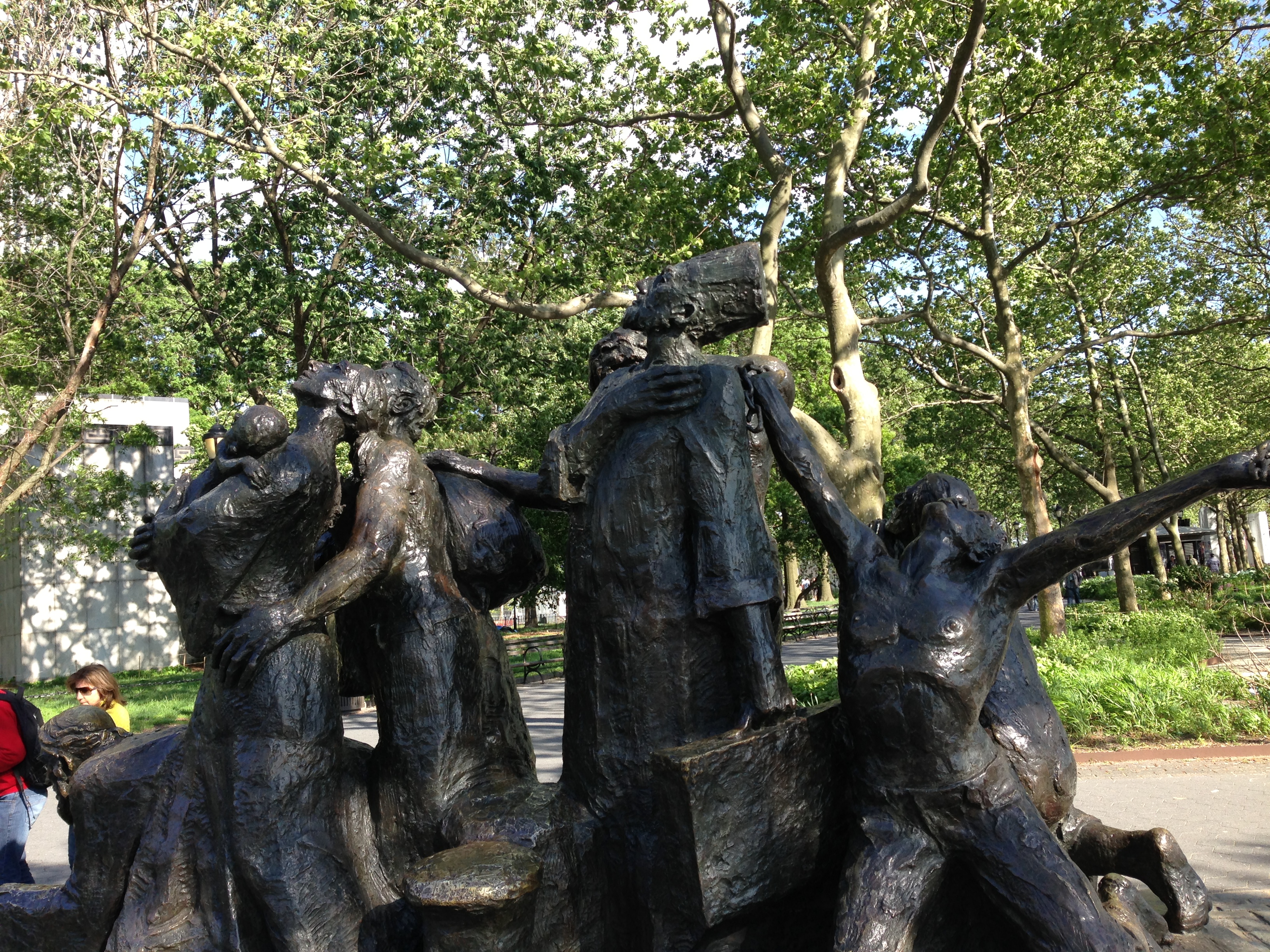Last month, I had the opportunity to be one of 50 young leaders from across the country to take part in the 2015 Millennial Leaders Program at Union Theological Seminary in New York City. The purpose of the conference is to gather together these millennial leaders to foster engagement around the intersection of their experiences of spirituality, social justice, and activism. It provides a unique opportunity to form a critical mass of activism with groups that don’t usually have an opportunity to come together. I took part in a number of workshops and trainings, including “Intersecting Identities, Intersecting Issues,” “The Collective: Community & Citizenship,” and “Building Bridges, Building Movements,” and heard from speakers such as Eboo Patel, founder of Interfaith Youth Core, and Rev. Traci Blackmon, a front-line leader in the Ferguson protest movement.
The conference was both inspiring and challenging, and it made me think about my work at the NCCC, both personally and collectively. The conference was interfaith (including no faith tradition), which reminded me of the Council’s commitment to interfaith work and Christian unity. Likewise, we discussed a range of intersectional issues spanning topics from the Black Lives Matter movement to the struggle for transgender rights. At the Council, we are also focused on a range of program areas related to struggles of our communities, and often our work is also intersectional. The other conference participants all came from different areas of activism, and their broad range of diversity highlighted for me the broad range of social justice the Council represents. Spanning climate change, healthcare, immigrant rights, peace, and rural life, the breadth of issues encouraged me to be constantly engaged in discussions of our Council’s work with other participants.
The two “field trips” that we took really resonated with me and the Kingdom work that we do at the Council. The first was to Brook Park in the South Bronx, the poorest community in New York, which has a community garden. This garden not only serves as a haven for the neighborhood, but also has a program for juvenile offenders who work there as an alternative to incarceration. We heard from youth who had been incarcerated and families whose children were currently incarcerated. I was reminded of the amazing work of churches with community gardens that I have witnessed at Come to the Table conferences, but I also wondered what more we could be doing. Should we be focusing more on supporting churches with prison ministries, and what could those ministries do to disrupt the school to prison pipeline? Likewise, we often think of community gardens as producing healthy food to nourish communities, but are there other ways that they can spiritually feed their neighbors?
We also took a poverty walking tour of Wall Street, which focused on how the wealthy have used their power to perpetuate systems of injustice since our nation’s founding. On this tour we stopped at the sculpture entitled “The Immigrants” in Battery Park. It shows a group of people, all from different countries, who have come to the United States for a variety of reasons. The sculpture is highly emotional, with the figures praying, weeping and focusing on hope. For many who pass it, the sculpture celebrates the diversity of our nation and the common unity of immigrants who here. However, the entire point of our tour was to question the way monuments are erected by those with power. Consider the slaves who were brought to this country against their will in shackles (the monument includes a freed slave with his arms stretched to the sky). If that statue had been created today, would it show the thousands of children fleeing Central America out of fear of violence and murder? Or the workers who come from other countries to pick our food and are routinely abused and robbed of their wages? This statue and tour reminded me of the important work that I do advocating for immigrants and farmworkers. Our nation is a nation of immigrants who continue to struggle as they have throughout American history.
I am continuing to process all that I learned, heard, and experienced at the Millennial Leaders Program. While the need for justice can sometimes feel overwhelming, this conference reminded me of the importance of seeing the humanity in others, especially those who are different from ourselves, regardless of faith, race or gender. Just as the Trinity demonstrates the interconnectedness of Father, Son and Holy Spirit, that interconnectedness is reflected in all creation. I am grateful and blessed that groups like Union Theological Seminary and the Millennial Leaders Program create spaces to bridge divisions between us in a world of conflict and dissension.

